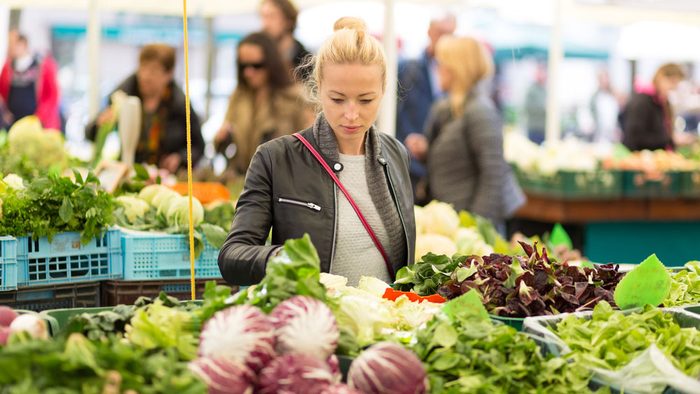
What are the healthiest vegetables?
We all know we should eat more veggies. But which ones should we focus on eating more of? Check out our top 10 list of healthiest vegetables.
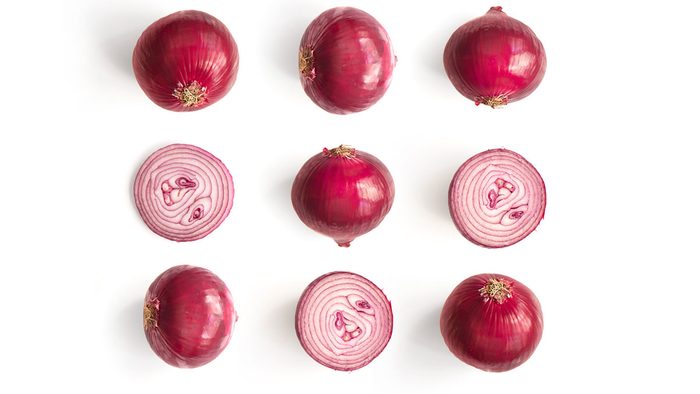
Onion
You’ll get the most out of this veggie’s cancer-fighting antioxidants by eating it raw; cooking onions at a high heat significantly reduces the benefits of phytochemicals that protect against lung and prostate cancer. (Find out how many times men should ejaculate for even more prostate cancer protection.) Try combining chopped raw onions with tomatoes, avocado, and jalapeño peppers for a blood sugar–friendly chip dip. Finish with a splash of lime juice. Learn why you should never double dip, though.
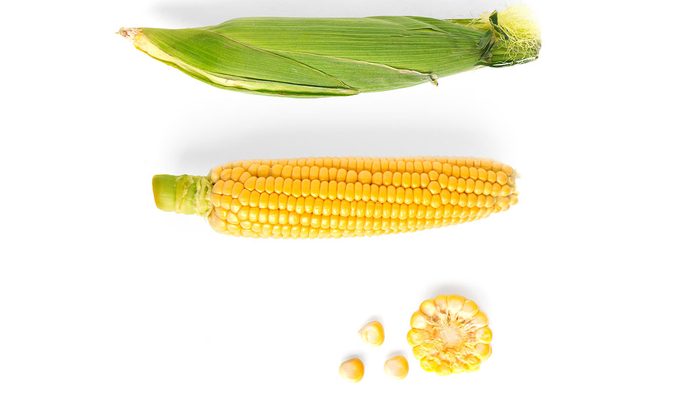
Corn
On the cob or off, it’s all good! A study in the Journal of Agricultural Food and Chemistry found that the longer corn was cooked, the higher the level of antioxidants like lutein, which combats blindness in older adults. Power up the nutrients by eating with another power house veggie: Try this Corn and Swiss Chard Sauté recipe.
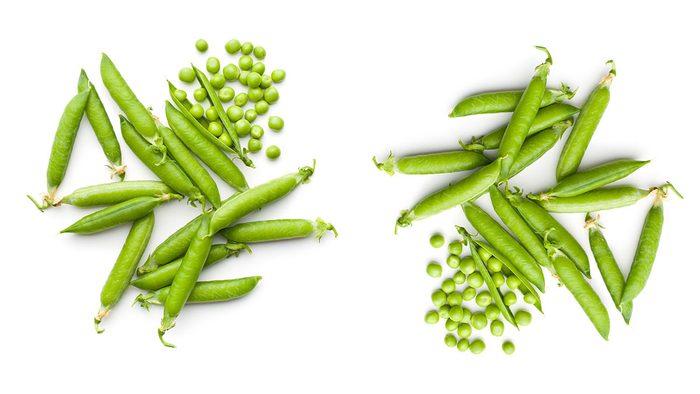
Peas
Tiny but mighty, one study in the International Journal of Cancer found that daily consumption of green peas along with other legumes lowered the risk of stomach cancer. Need some cooking ideas? Check out: Cooking With Peas: 1 Ingredient, 4 Ways.
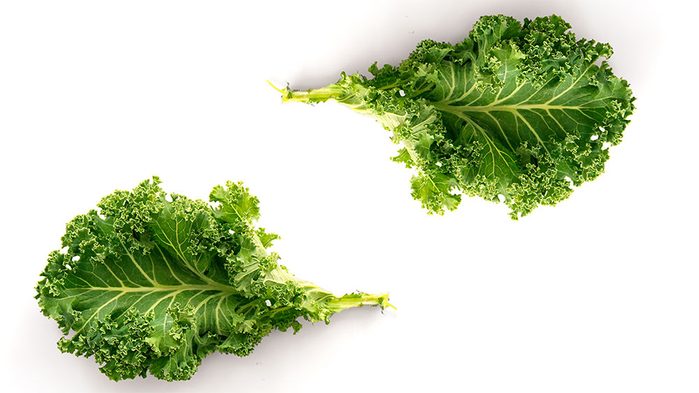
Kale
This is one of the healthiest green vegetables at your supermarket. Kale’s curly green leaves are chock full of vitamin C, an antioxidant that may reduce the risk of heart disease by lowering levels of LDL, or “bad” cholesterol. While you’re eating your leafy greens, avoid these 8 worst eating habits for your cholesterol.
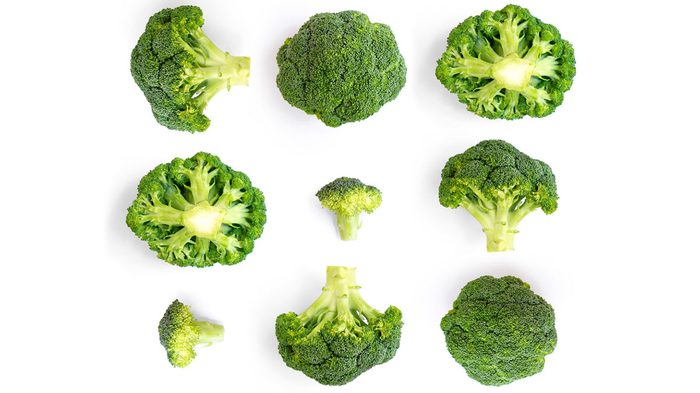
Broccoli
Broccoli is full of cancer-fighting antioxidants. One study found that those who ate five servings or more per week of cruciferous veggies (including these green vegetables!) were half as likely to develop bladder cancers over a 10-year period, compared to those who rarely ate them.
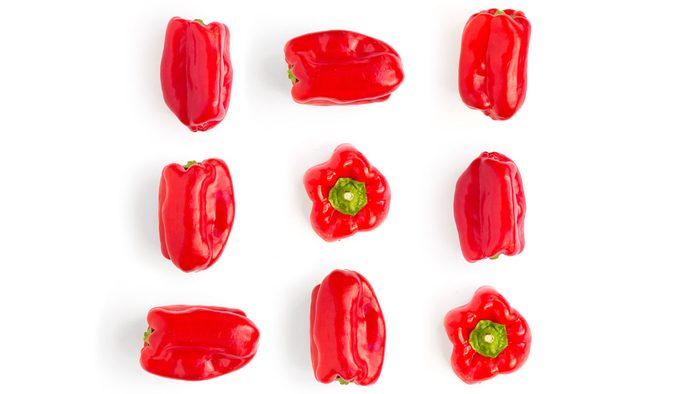
Red bell pepper
One medium pepper is light on calories (only 32!) but heavy on vitamin C, providing 150 percent of your recommended daily value and warding off atherosclerosis, which can lead to heart disease. Check out these other 10 foods with more vitamin C than an orange.
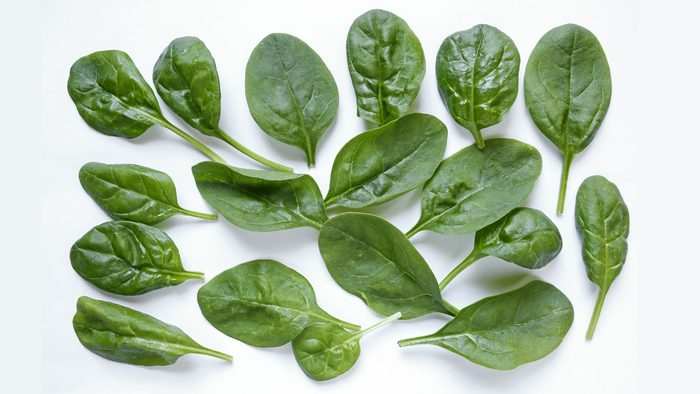
Spinach
Spinach is packed with carotenoids – antioxidants that promote healthy eyes and help prevent macular degeneration, the leading cause of blindness in older adults. Cooking these green vegetables helps make lutein (a carotenoid) more absorbable by your body. Find out what else can happen if you don’t eat your fruits and vegetables.
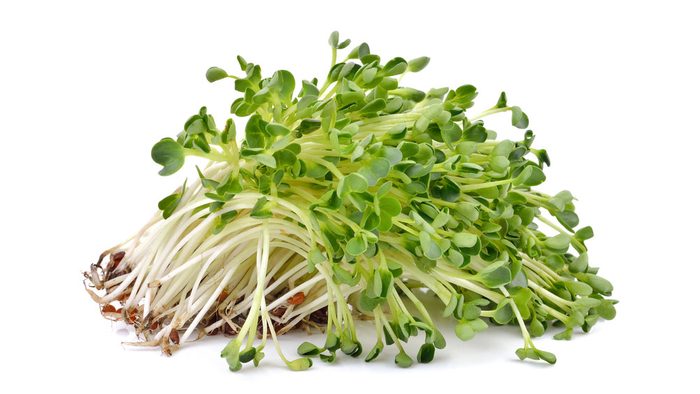
Alfalfa sprouts
This tiny powerhouse is rich in beta-carotene, an antioxidant that protects against lung cancer and helps maintain healthy skin, hair, nails, gums, glands, bones, and teeth. It’s also a good source of vitamin E, which may help prevent heart attacks, stokes, and lower the risk of death from bladder cancer. Get more of the green vegetable and less of these foods cancer doctors try never to eat.
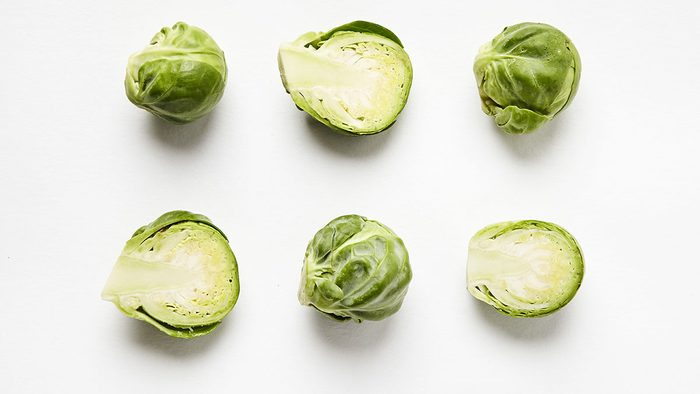
Brussels sprouts
photo credit: shutterstock
The antioxidants in these green vegetables can help detoxify cancer-causing free radicals, and with 80 percent of your daily vitamin C in just 1/2 cup, also help fight heart disease and ward off cataracts. Try sautéing them with a little bacon or olive oil and mustard for a smoky kick.
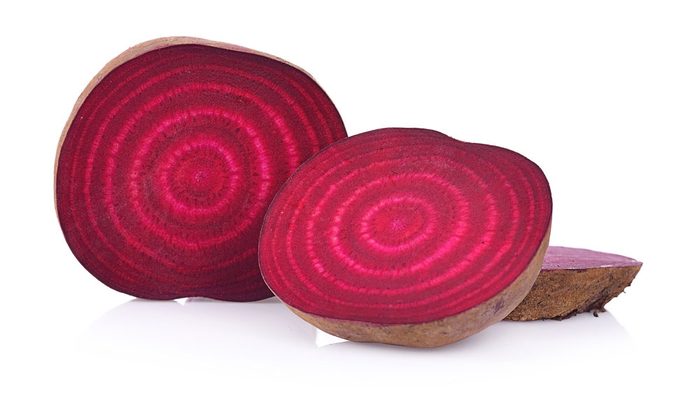
Beets
Roasted or pickled, this root vegetable contains high levels of antioxidants that fight cancer, as well as lutein, which protects the eyes. Don’t throw out those leaves! Beet greens are the most nutritious part of the vegetable and can be cooked like other dark leafy green vegetables. Learn why they’re one of 12 foods nutritionists eat every day. Check out: Why Beets are a Superfood You Should Eat More Often.
